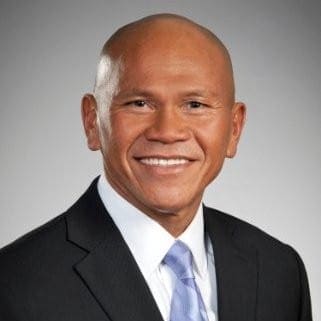By Ron Bote
 Congratulations! Your bank has approved your Paycheck Protection Program (“PPP”) loan application and it’s now been sent to the SBA. You’re about to receive additional funds to keep your operations running. However, now is not the time to lose focus. Use this opportunity to be even more focused on your strategies as you anticipate the receipt of this much needed infusion.
Congratulations! Your bank has approved your Paycheck Protection Program (“PPP”) loan application and it’s now been sent to the SBA. You’re about to receive additional funds to keep your operations running. However, now is not the time to lose focus. Use this opportunity to be even more focused on your strategies as you anticipate the receipt of this much needed infusion.
Extending the runway
Your goal is to keep as much cash as possible to weather the storm. Try to be aggressive in your forecast and assume you may need at least 12 months of cash on hand. The more rigor you put into developing your cash-flow projection, the more meaningful the exercise will be for you. Review your runway and determine where you can defer costs or aggressively lower your budget. Expenses outside of your budget should be prioritized. They should be evaluated based on a cost-benefit analysis. The question you should ask yourself is whether the payment is worth burning the cash and raising more funds sooner. Remember, the more cash you need to raise from external investors will further dilute your potential employee ownership in the company and future talent.
Keep looking for more tax breaks and financial assistance
The PPP was a significant portion of economic relief. There are additional opportunities that will put money in the hands of people and businesses to stimulate the economy. Now is the time to look even harder for additional tax breaks and business loans. In addition to the PPP, the SBA is providing an additional loan program called Economic Injury Disaster Loan (“EIDL”). A business can receive $2,000,000, including a $10,000 advance at the time of the application. Relief loans can supplement your cash-flow without layoffs, which can be costly for you when building your company back up. Be creative and look for other sources of non-equity cash that can get you through this downturn.
In addition to loans, there are also payroll tax credits for retaining employees, as well as income tax and payroll tax deferrals. The Coronavirus Relief and Economic Security Act (“CARES”) added a provision to allow business owners to defer the payment of a portion of their 2020 Social Security tax obligation until 2021/2022. The amount of the deferral is the employer’s 6.2% share of employment taxes. In addition, CARES added refundable credit called Employee Retention Credit for 50% of qualifying wages up to $10,000 per employee that are paid after March 12, 2020, and before January 1, 2021. Finally, one of the earliest programs to assist small businesses was the enactment of the Families First Coronavirus Response Act (“FFCRA”) which allowed for extended paid sick leave and expanded family and medical leave benefits.
It is worthwhile to note that you can’t double dip. The IRS makes it clear that employers cannot use the same wages payments for different benefits. In other words, if an employer is taking FFCRA tax credits for FFCRA wage payments, those wage payments will not count as “eligible payroll costs” for purposes of determining a Small Business Interruption Loan amount and subsequent forgiveness under PPP. Likewise, the qualified wages for the 50% employee retention credit under the CARES Act do not include the amount of qualified leave wages for which the employer received tax credits under the FFCRA.
Get help
Social distancing should be followed to keep safe and healthy, but communicating with your connections and network are more important than ever. In addition to getting assistance from your investors, communicating with your accountant, lawyer, banker and insurance agent can be as important as raising money. They are going to be invested in your situation and related outcomes. It’s good to touch base as they may have additional ideas how to navigate the COVID-19 environment or suggestions on ways you can maintain operations. Be proactive and communicate frequently and openly. The sooner you can honestly assess your situation with your relationships, the sooner you can come up with a plan to manage it.
Remember: Everyone is struggling. This means there’s a good chance you’ll find people open to listening, give you an encouraging word, and be there for you. Some have lived and worked through the 2008 financial crisis and 9/11 and can be great resources for navigating through this crisis. No one knows what the long-term ramifications of this pandemic will be on the ecosystem. The market will change in the years to come and it’s unlikely to go back to the status quo of the past decade. Strive to stay apprised of rapidly changing federal, state and local regulations, protections and support opportunities. Above all – we can’t say it enough – keep the lines of communication open.
Bote is a director and CPA at WIPFLi and passionate about taxes and startups across Wisconsin. He can be reached via email at rbote@wipfli.com or connect on LinkedIn.


